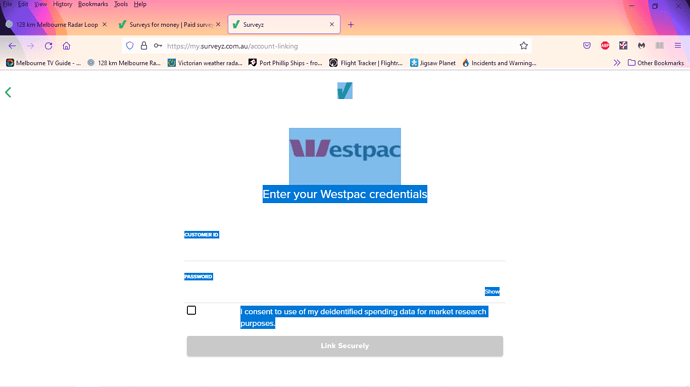Hi @djinau, welcome to the community.
I would be very concerned as well. I hadn’t heard of them until your post. Doing a bit of digging and a bit more, it appears the main complaint of its registered members is that payouts of accrued points as cash often doesn’t happen. This also raises alarm bells to the business’s practices.
There are many survey apps and websites which are data harvesters. Like social platforms (Facebook, Google etc), user data is valuable and harvesting is core part of their business…
Survey Junkie is an online market research community that is wholly owned by DISQO, Inc. (www.disqo.com). DISQO is a market research, consumer insights, and analytics platform that sells and delivers data and analytics to the market research industry and various business clients. We believe consumers like you deserve better products and services, and we built Survey Junkie to help you share information with brands and market researchers, so they better understand consumers (source Survey Junkie Terms - I have bolded the key words).
Their privacy policy is also an interesting read and includes personal information they collect on users.
Data becomes even more valuable when it can be verified and attached to a specific person, as the data can be used to profile individuals and as such, becomes more valuable when sold (as they disclose they do in the above terms). As www.disqo.com was set up 'to bring people and business together in a valuable exchange of information to improve data quality.', it is not surprising they are after government validated identification to meet this outcome.
Requesting government validated form of identification would be gold to them, as not only would is validate their data but data others collect. This can be done by linking common online identifiers (IP address, email address etc) to a real, validated person. Gold for those who collect data as the most important key has been provided voluntarily by a user.
Would I give them my government validated ID, no, unless I was comfortable posting the same information on any online platform for the world to see. While they won’t be posting it online in the same way, giving it to them allows them to use as they chose.
I also can guess you have amassed a reasonable amount of points/cash with them. Locking your account if you have a reasonable amount of redeemable points/cash means a user is more likely to be forthcoming in providing the requested government validated identification. It is simple psychology, put a bowl of chocolates in the middle of the table…all for one to enjoy. They let you smell and watch the chocolates, but you can’t have one unless you agree to something they say…of course most give in as the temptation becomes stronger than the will to refuse.
One can opt out by filling in their webform requesting the data they will/have collected on you isn’t on sold…but how many users would do this and what are the repercussions if you do (some are outlined in their Terms, but suspect that Survey Junkie reserves the right to change, modify, or eliminate, and/or restrict or block access to, all or any part of the Services, without notice, at any time, for any reason or no reason.). And being a US company based in the US, if they fail to honour such a request and allow access to their platform, what is the likelihood a little Aussie will take them on through the US legal system.
Unless one is comfortable with any of the above, I would be avoiding them with the biggest barge pole I could find (preferably one that extends from Australia to the US).
I am not sure how comfortable you are with the above. If you aren’t, it might be worth filling in the webform (hoping it has some effect) and moving on…taking the time and cash lost as a lesson to take forward with you into the future.
